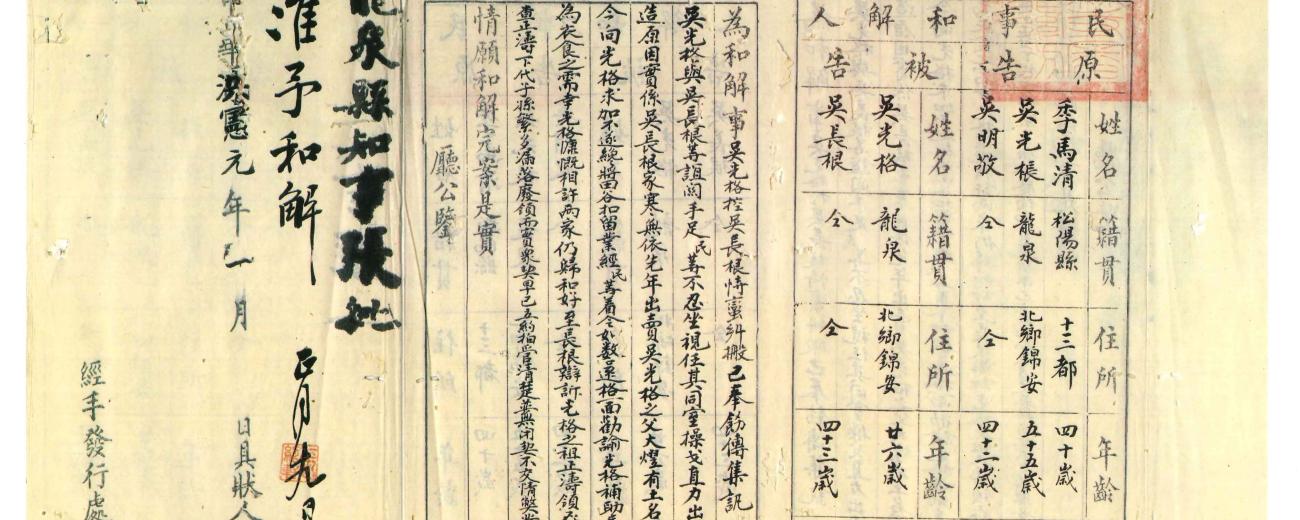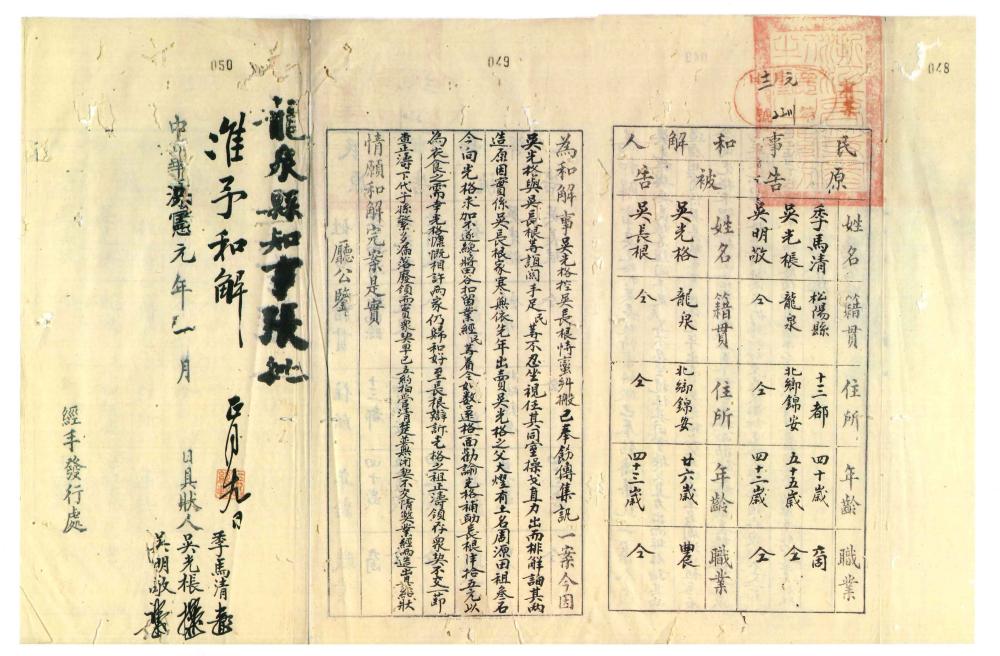
Legal pluralism in Qing China and its transplantation and transformation

Key information
- Date
- Time
-
1:00 pm to 2:00 pm
- Venue
- SOAS Library
- Room
- E17
About this event
The author argues that in traditional Chinese legal culture, the pluralistic normative orders – derived by the interaction of different orders (including Legalism, Confucianism and state law) – had been adapted and adopted by the local communities for many centuries.
These normative orders were blended, in parallel with the established state legal system, to become a complexed administrative system exerting political and social control to people in Qing China. Examining the “semi-autonomous social fields” in the local communities, the author shows that how the social norms and practices such as “no litigation” (wusong) and “communal covenant system” (xiangyue), in addition to the state legal system, help to strengthen the governance in a multicultural and multi-ethnic polity of Qing government.
With the migration of Chinese people from Qing China to Taiwan and other parts of South East Asia, such mixture of laws and norms were diffused in the form of what were characterised as ‘Chinese customary law’ to other jurisdictions, and became part of, or subdue to, the colonial legal systems imposed by colonial powers such as Japan and Great Britain. Analysing the historical origins, evolution and inter-action of the pluralistic normative orders in Qing dynasty, the author hopes to contribute to the debate on the nature of legal pluralism in imperial China and its impacts to other jurisdictions in Taiwan and South East Asia.
About the speaker
Max WL Wong, Visiting Fellow, Philip K.H. Wong Centre for Chinese Law and Honorary Assistant Professor, School of Modern Languages and Cultures, University of Hong Kong. He is also the member of the Centre for Law in Asia, SOAS, University of London. His previous books include, Chinese Marriage and Social Change: The Legal Abolition of Concubinage in Hong Kong (2020, Springer), Re-ordering Hong Kong: Decolonisation and the Hong Kong Bill of Rights Ordinance (2017, Wildy, Simmonds and Hill).
He recent articles include, “‘Lost in Transplantation’: The De Facto Recognition in Hong Kong of Bigamy in Ma Siu Siu Vivian v Tam Wai Mun Alice”, Amicus Curiae, (2022) Series 2, Vol. 3, No.3, 562-571.; “‘Continuity or Empowerment?': Judicial Interpretation of Divorce in the Da Li Yuan in Early Republican China” (2020) Journal of Comparative Law, 15(2), 66-87.
Chair: Professor Michael J E Palmer, Emeritus Professor of Law, SOAS University of London
Contact
- Organiser: Centre for the Study of Law in Asia, School of Law, SOAS in collaboration with SOAS Library
- Contact: librarycomms@soas.ac.uk




